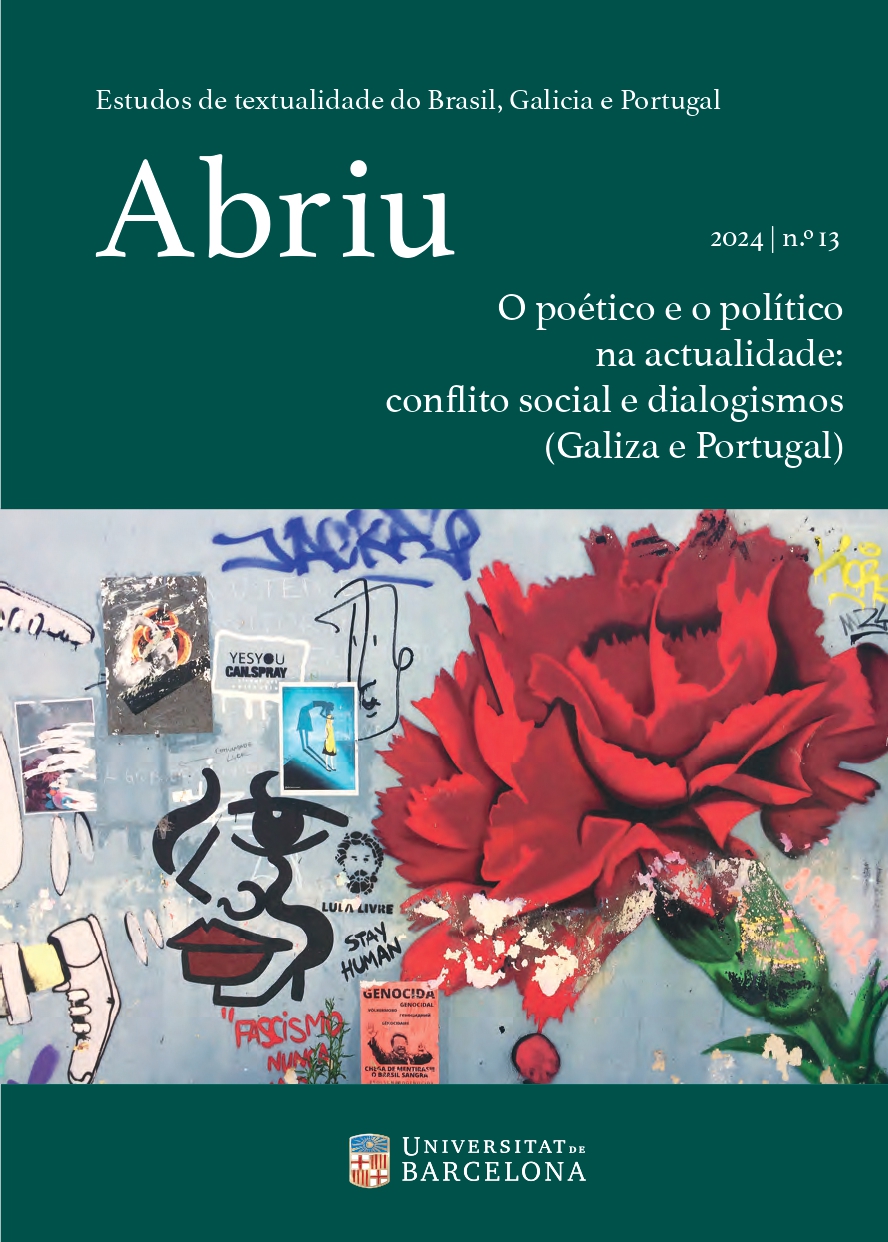The self-representation of Galician identity in contemporary popular music: deperipheralization, gender subversion, and extractivist critique
DOI:
https://doi.org/10.1344/abriu2024.13.10Keywords:
representation, identity, stereotype, deperipheralization, intersectionalityAbstract
We try to analyse the self-representation of national or gender identity among current offers in galician music, between ludic and serious, between antagonisms and stereotypes. At the neotraditional tendency can be observed a self-representation from a heteronomous perspective, nearly a subordinate looking, following Bhabha, as it was conformed under the hegemonic subject look. It seems an exotic, mysterious incarnation of an archaic Galician stereotype or beside the image promoted abroad by institutional advertisement. Galicia, as a mixture between tradition and progress, understood as an anthropological comfort. Beside the comfortableness from the modern issues, from a kind of possibility of domestication that it implies, the epic element is there, focusing the elements on the territory to discover or domain. Opposite this, we can see other post-ironic proposals.
We try to analyse the self-representation of national or gender identity among some offers from popular Galician music during the last two decades, finding some spaces between stereotype and antagonism. The selection is focused over a more alternative or underground sphere, where the will for self-representation seems to exist and where the individual or collective subject, conformed by different stratifications or sections, seeks to imagine itself. We understand that the deconstruction implies, on a more or less explicit way, the destabilization of that reality that was called deperipheralization.
Downloads
Published
How to Cite
Issue
Section
License
Copyright (c) 2023 Rebeca Baceiredo

This work is licensed under a Creative Commons Attribution-NonCommercial-NoDerivatives 4.0 International License.
The Author retains ownership of the copyright of the article, unless the contrary is stated, and all rights not expressly granted in this agreement, including the non-exclusive right to reproduce, distribute, perform, and display the article in print or electronic form, and grants to Abriu: estudos de textualidade do Brasil, Galicia e Portugal the exclusive rights to first publication of the Article. The work will be available under a Creative Commons Attribution-Noncommercial-No Derivative Works license, by which the article must be credited to the Author and the Journal must be credited as first place of publication.


